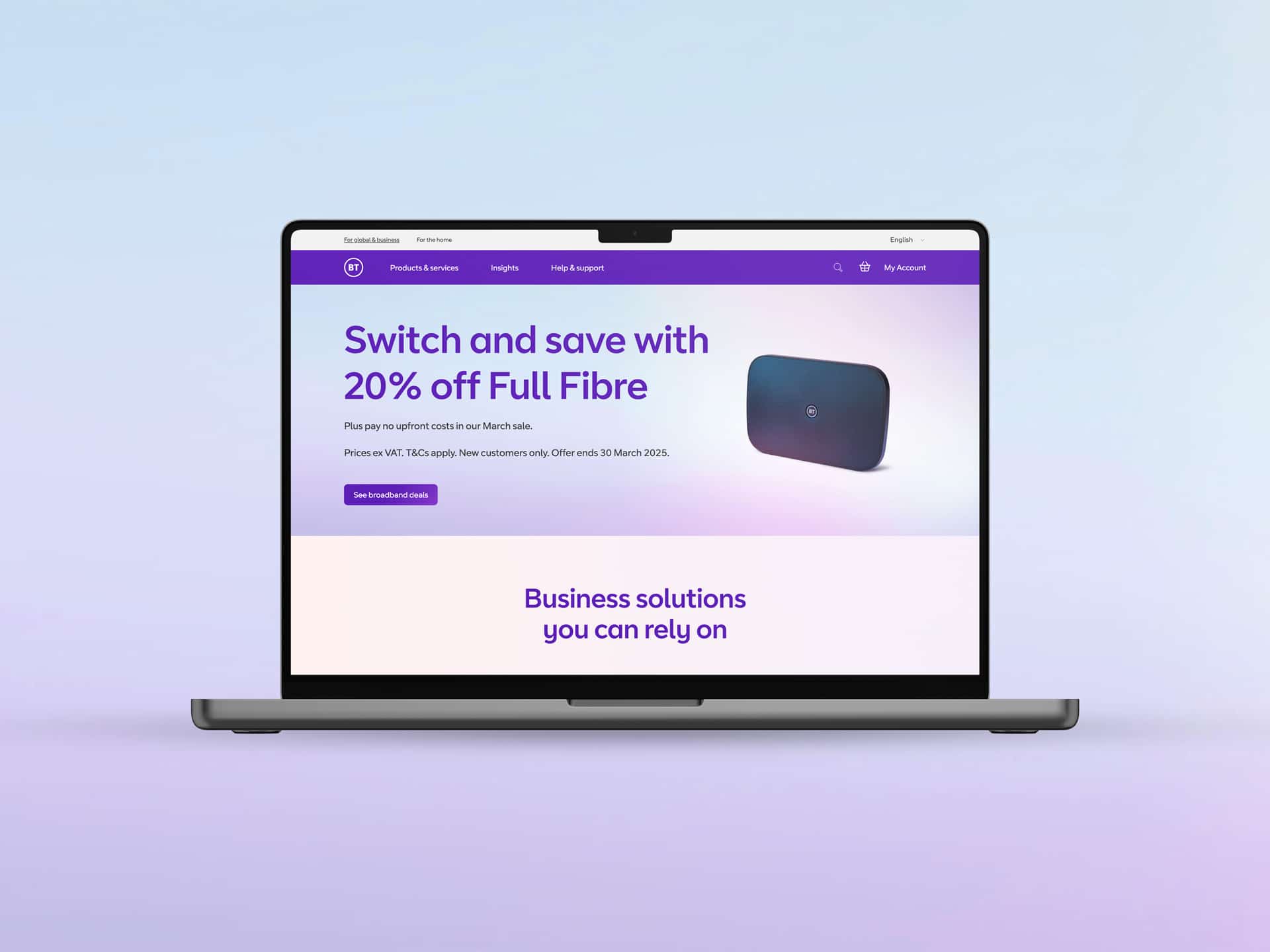Why SEO still matters and how to get it right
If your prospects can’t find you, they can’t buy from you.
It sounds simple, but in a predominantly ‘online world’ where competition is fierce and attention spans are short, standing out in search is a challenge most businesses underestimate. The telecoms and IoT industries, in particular, often see SEO (search engine optimisation) as an afterthought rather than a core revenue-driving strategy.
As a result, businesses struggle to rank as high as their competitors on Google because the market is crowded with sites vying for the same keywords. Outdated content and slow-loading pages only make matters worse, impacting rankings and turning away potential buyers.
Many business leaders give up on SEO when it doesn’t deliver instant results or leads. The truth is, SEO isn’t a one-off task. Done right, it’s a continuous sales driver that quietly attracts, engages, and converts the right audience—without the growing cost of paid ads.
What is SEO and why should you care?
SEO is the process of optimising your website so it ranks higher on search engines, helping you:
- Get found by the right people at the right time
- Increase organic traffic and reduce reliance on paid media
- Generate more high-intent leads
- Improve the overall user experience (which Google rewards!)
Successful SEO isn’t just about sprinkling in keywords or hoping Google picks up your latest blog. It’s a strategic combination of:
- On-page SEO – Are your titles, meta descriptions, and headers optimised?
- Technical SEO – Is your site fast, mobile-friendly, and properly indexed?
- Content quality – Does your content answer real customer questions in a way that’s useful and engaging?
- Off-page SEO – Do you have backlinks and external credibility signals?
- User experience – Can visitors easily navigate and take action on your site?
Why SEO is a long game and why it still works
Google doesn’t reward quick fixes or one-time efforts. It rewards consistency, relevance, and value. Right now, your competitors – maybe even ones with smaller budgets – are regularly feeding Google optimised content, building authority and outperforming those who overlook SEO.
If your SEO efforts have stalled in the past, chances are they lacked:
- A clear strategy based on real customer search intent
- A structured plan to consistently create and update content
- Strong technical foundations that support site performance
- A way to measure impact beyond vanity metrics like traffic
When SEO is done right, it becomes a 24/7 sales tool, driving qualified traffic and helping prospects self-educate before they even speak to sales.
Google doesn’t reward quick fixes or one-time efforts. It rewards consistency, relevance, and value.
Real-world relevance: Think like a buyer, not a product sheet
Your customers aren’t searching for “eSIM with fixed IP and low latency.” They’re looking for “best connectivity for card machines in remote areas” or “how to stop ePOS losing signal.”
Good SEO helps bridge the gap between technical product specs and real-world problems your customers need solutions for. The better your content aligns with their actual searches, the better your chances of ranking – and converting.
Who’s doing it well and why we think it works
One of our telecoms clients was competing against a bigger rival with a larger budget—but smart SEO leveled the playing field. By focusing on real customer search terms instead of industry jargon, we helped them increase website traffic and skyrocket inbound leads by 700% in just one quarter.
We also admire how BT Business structures its service pages around search-friendly, intent-driven phrases like “business broadband deals” and “small business broadband” instead of relying on internal terminology. It’s a smart approach – balancing customer-first SEO with a seamless user experience with clear CTA’s that make it easier for buyers to take action.

Key takeaways for SEO success in Telecoms:





Ask us for a free SEO audit today.

Meet Laura, our dynamic Marketing Manager who oversees all our projects, bringing expertise that’s as robust as her strategies. She has worked with BAE Systems, Thales, and Leonardo.



